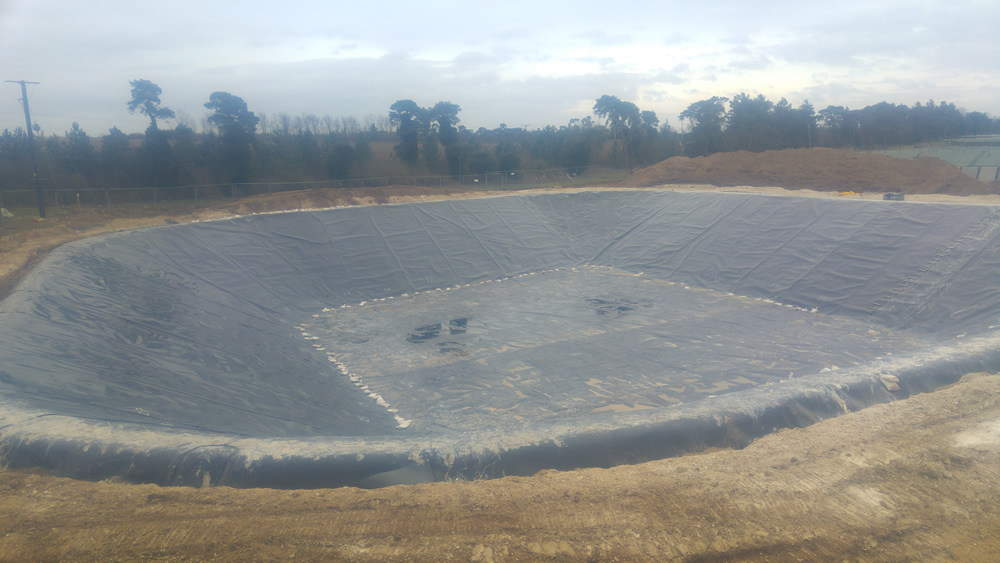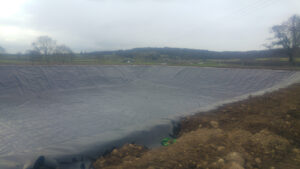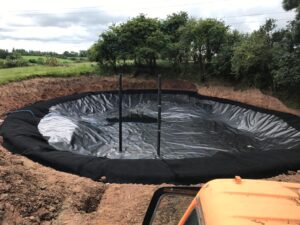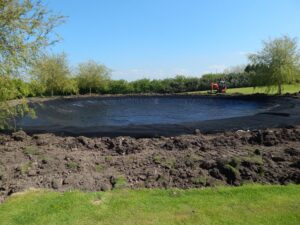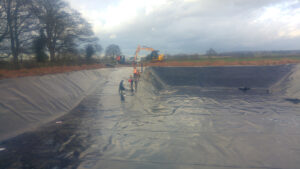In agricultural water management, irrigation reservoirs and lagoons serve as essential components, facilitating water storage for crop irrigation and ensuring consistent water supply for farming operations. Within these systems, the incorporation of liners stands as a crucial measure, playing a pivotal role in safeguarding water resources and optimising irrigation practices.
Liners serve as protective barriers within irrigation reservoirs and lagoons, preventing seepage and leakage of water into the surrounding soil. Impermeable liners, typically made of materials like geomembranes, clay, or synthetic liners such as High-Density Polyethylene (HDPE), effectively contain stored water, reducing the loss of valuable resources through seepage.
The significance of liners in these water storage facilities becomes evident in their role in minimising water loss. Without proper containment, water stored in reservoirs and lagoons can seep into the soil, leading to significant losses through infiltration. Liners act as a barrier, mitigating this loss and ensuring that water remains available for irrigation purposes, especially crucial in regions with water scarcity or seasonal fluctuations in rainfall.
Moreover, liners play a pivotal role in preserving water quality within irrigation reservoirs and lagoons. By preventing the infiltration of contaminants from the surrounding soil or external sources, liners help maintain the integrity and purity of stored water. This is particularly vital as contaminated water can negatively impact crop health, soil fertility, and the overall success of agricultural endeavours.
The use of liners also contributes to sustainable water management practices. By minimising water loss through seepage, these barriers support efficient water utilisation, allowing farmers to optimise their irrigation strategies and reduce dependency on external water sources. This fosters better water conservation and management, aligning with sustainability goals in agriculture.
Furthermore, liners in irrigation reservoirs and lagoons aid in controlling evaporation rates. While liners primarily prevent seepage, they also reduce the surface area exposed to air, thereby curbing excessive evaporation. This feature becomes invaluable in regions with high temperatures or arid climates, where evaporation rates can significantly impact water availability for irrigation.
The installation of liners requires careful consideration of factors such as liner material, site conditions, and proper maintenance practices. Regular inspections and maintenance help ensure the longevity and effectiveness of liners, preserving their ability to provide reliable containment and protection of stored water.
In conclusion, the inclusion of liners in water irrigation reservoirs and lagoons plays a vital role in sustainable agriculture by safeguarding water resources and optimising irrigation practices. These protective barriers mitigate water loss, preserve water quality, and support efficient water management, contributing to the resilience of agricultural operations. With their ability to conserve water and maintain its quality, liners stand as essential components in the quest for sustainable and efficient water usage in agricultural settings.
To find out more about our products and services and how we can help you, please contact us using the below –
Tel: 01695 228626
Email: enquiries@enviroseal.co.uk

